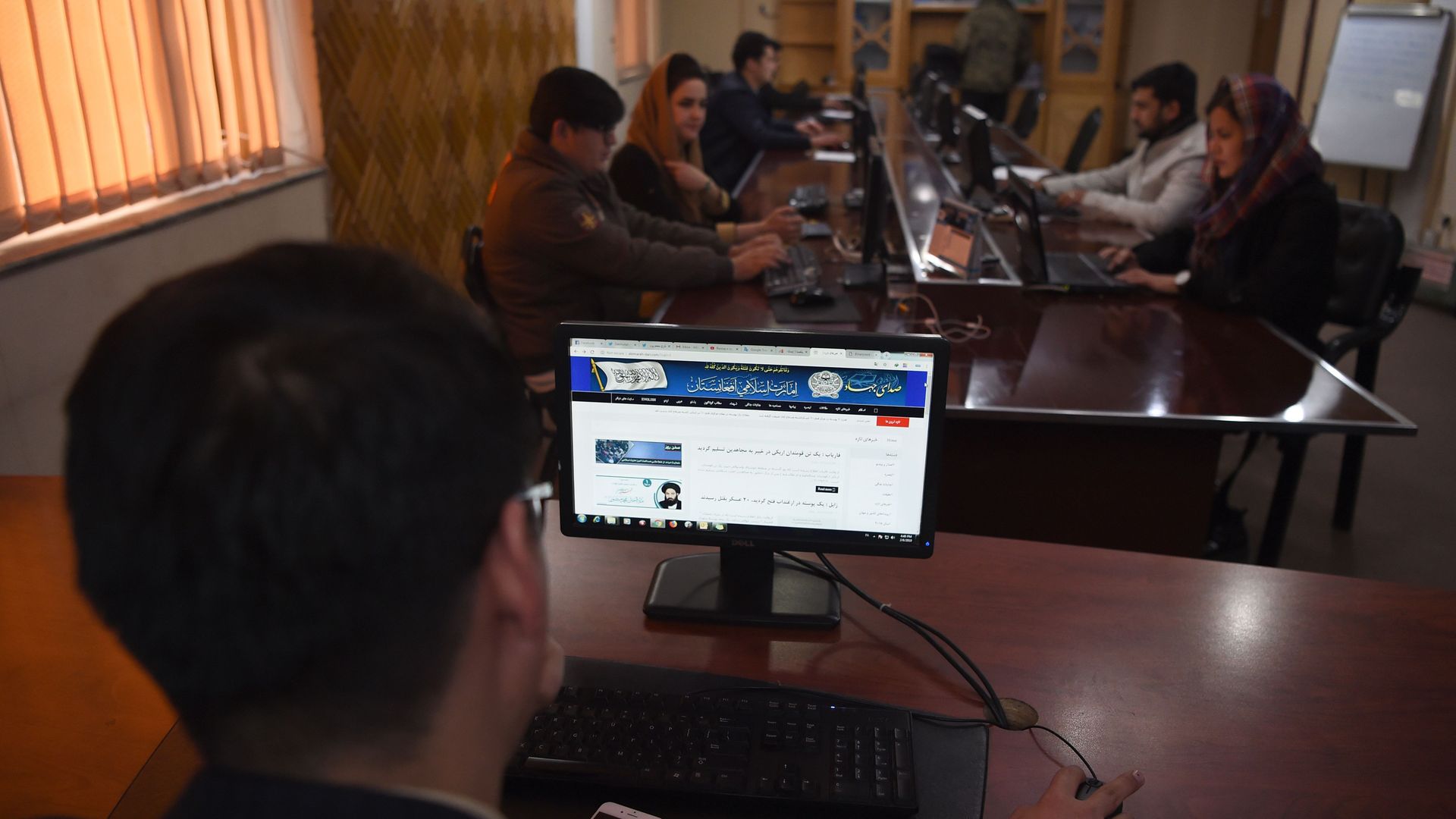Aug 18, 2021 - World
Facebook stands by its ban on Taliban
Add Axios as your preferred source to
see more of our stories on Google.

An Afghan reporter browses the Taliban's website in the newsroom at Maiwand TV station in Kabul in February 2019. Photo: Wakil Kohsar/AFP via Getty Images
